

Official Event Website.
Tevis 2012
Tevis 2011
Tevis 2010
Tevis 2009
Sports Illustrated 1966 - The Cup At The End Of The Mountain Trail
Sports Illustrated 1987 - This is No Joyride
2013 Tevis Cup
Images by Merri Melde
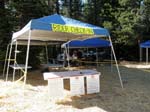
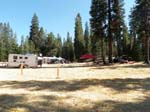
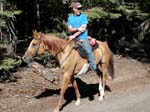
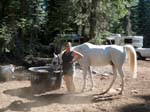
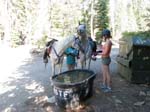
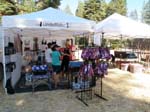
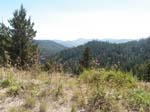

PHOTOS:
Lynne Glazer Photography || Elephant's Trunk by Pekka
The Cup At The End Of The Mountain Trail
Sportsillustrated.cnn.com - Full ArticleSeptember 26 1966
The horses and their improbable riders gathered at Tahoe City, Calif. for the yearly Tevis Cup race across the winding paths and hazardous streams of the Sierra to Auburn, 100 miles away
Alice Higgins
What the Boston Marathon is to the distance runner, the Western States 100-mile, one-day ride for the Tevis Cup is to the endurance horseman. And, like the marathon, the California race over the rugged Sierra from Tahoe City to Auburn attracts some improbable but wonderful people. Among the 92 riders who started this year, there were a couple on their honeymoon, a 12-year-old girl, a 72-year-old man who had put off a hernia operation in order to compete, an Indian ranch hand, some polo players, a woman believed to be a Cherokee princess, an assortment of mothers, secretaries, factory workers and businessmen and a man with a gray vandyke beard who was described as a retired capitalist.
The stallions, mares and geldings entered were just as surprisingly diverse, and included just about everything found in a horse encyclopedia: Arabians, Anglo-Arabians, a Peruvian Paso, quarter horses, Appaloosas, Thoroughbreds, Standardbreds, Morgans pure and crossed with all the others, Pintos, buckskins, palominos and even a plain old western mustang. The horses were brought to Tahoe City's ball park the day before the race to be examined by eight veterinarians. Any horse whose condition was the slightest bit questionable was disqualified. "It is the integrity of the ride that matters," said Will Tevis, who, with his brothers, contributed the cup in memory of their grandfather. "We want to be sure that the horses are sound at the start and are humanely treated. A winning racehorse can finish lame, but here no unsound horse can win. In fact, he would probably be caught at one of the checkpoints [there are four], instantly disqualified and removed by trailer." One of the requirements of the Tevis Cup is that the winner must be serviceably sound in the opinion of the vet examining board, and another prize, the Haggin Cup, is offered to the horse that finishes in the best physical condition among the top 10. Many riders enter with no hope of winning but just to complete the 100 miles. If they do, and their horses pass examination, each is awarded a sterling silver and gold buckle. This specially designed and highly prized trophy is worn by only one man who has not competed in the race. He is 76-year-old Will Tevis, who holds the world record for riding 200 miles in about 10 hours and who in 1923 helped to defeat an Army team in a reenactment of the Pony Express ride from the Nevada border to the Pacific.
Although he did not ride, Tevis had several horses entered whose training and conditioning he had planned. Another nonrider with multiple entries was Wendell Robie, who originated the 100-mile ride. In the early '30s he was guided over the almost-forgotten trail by Robert Watson, a son of one of the area's pioneers. Some months later Watson was killed in a fall, leaving Robie and a handful of friends the only men with an intimate knowledge of this onetime gold-rush and Pony Express route. The trail is as hazardous as it is historic, going up to almost 8,000 feet at Emigrant Pass, where glaciers still lie in pockets, and snaking close to 2,000 feet into canyons where the temperature can reach 110*.
This was the test that drew horses and riders to Tahoe City in the chill, dark dawn. The ride is always scheduled when there will be a full moon to light the trail, but this year the skies remained perversely overcast. The riders, astride English, Western or McClellan saddles, were started in flights of six, with the cup competitors leading and the buckle-seekers setting off last. The popular favorite was Ed Johnson, on his Arabian stallion Bezatal, who established a new record last year by finishing in 11 hours 38 minutes. Another strong contender was Donna Fitzgerald on an Arabian gelding named Razlind. They had finished second last year, and the horse's owner, Ted Jerry, had promised to give the gray to Donna if they finished in the first five...
Read more here:
http://sportsillustrated.cnn.com/vault/article/magazine/MAG1079087/1/index.htm




